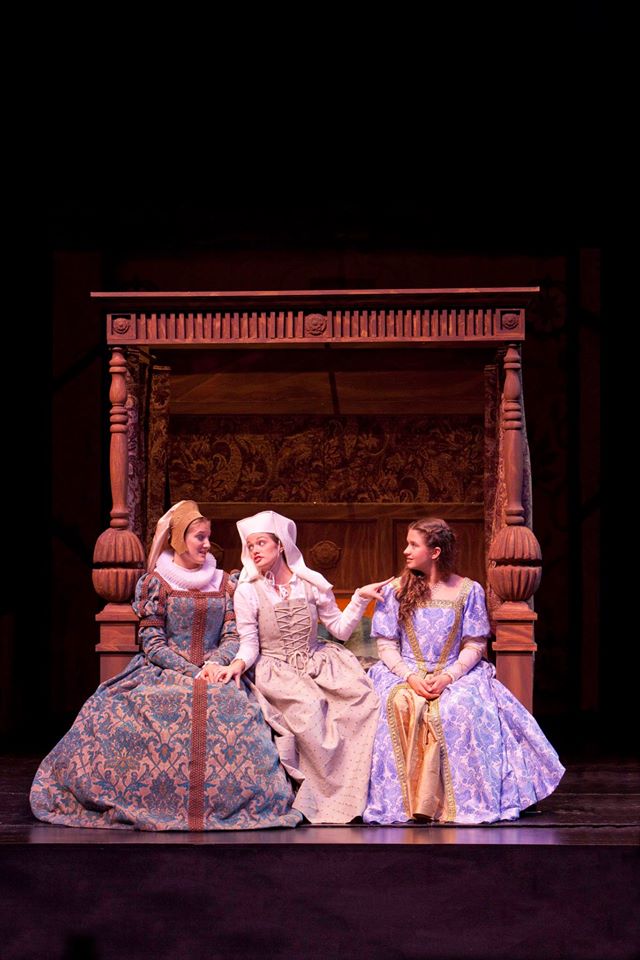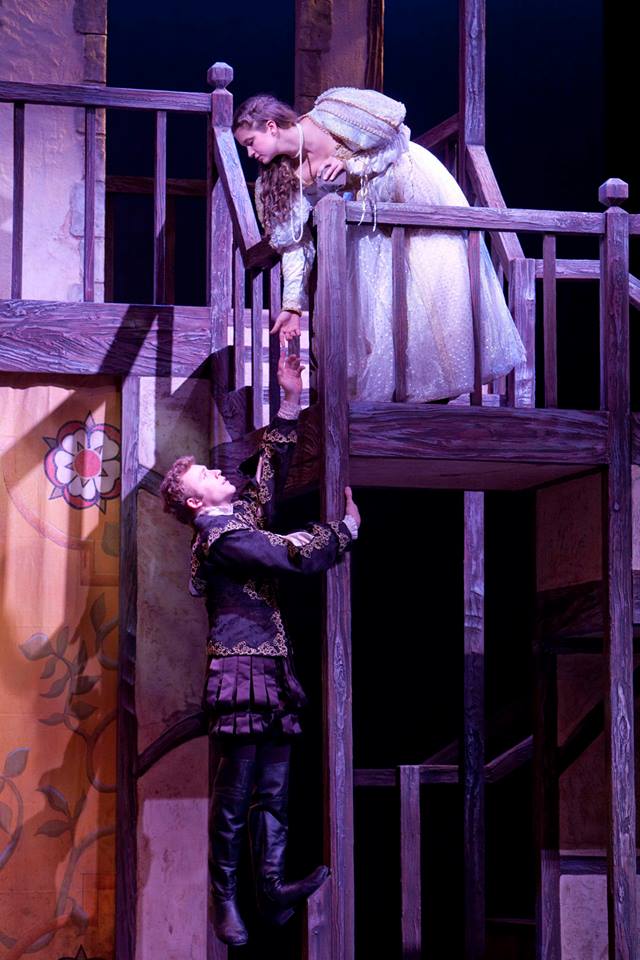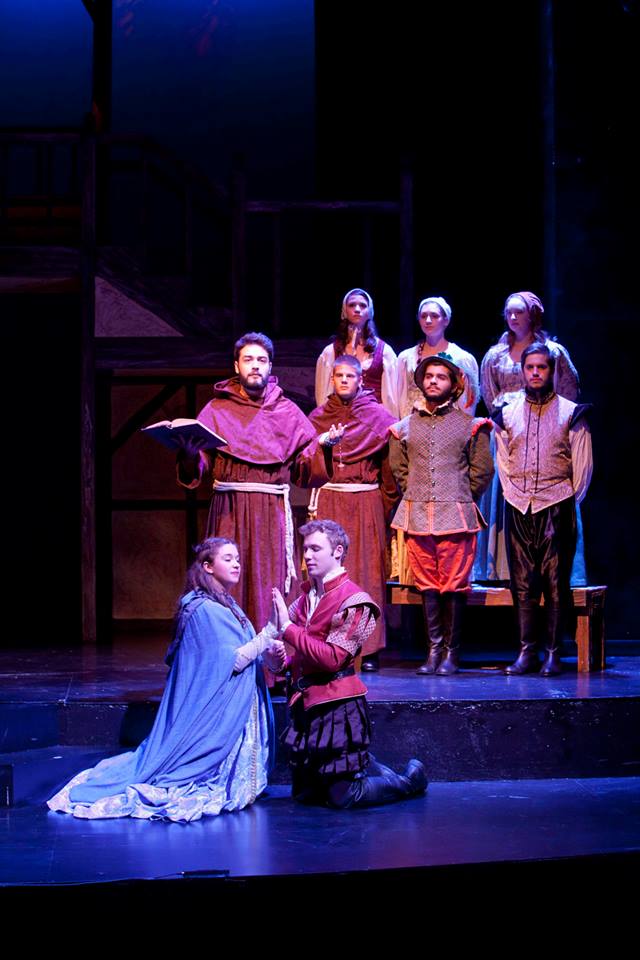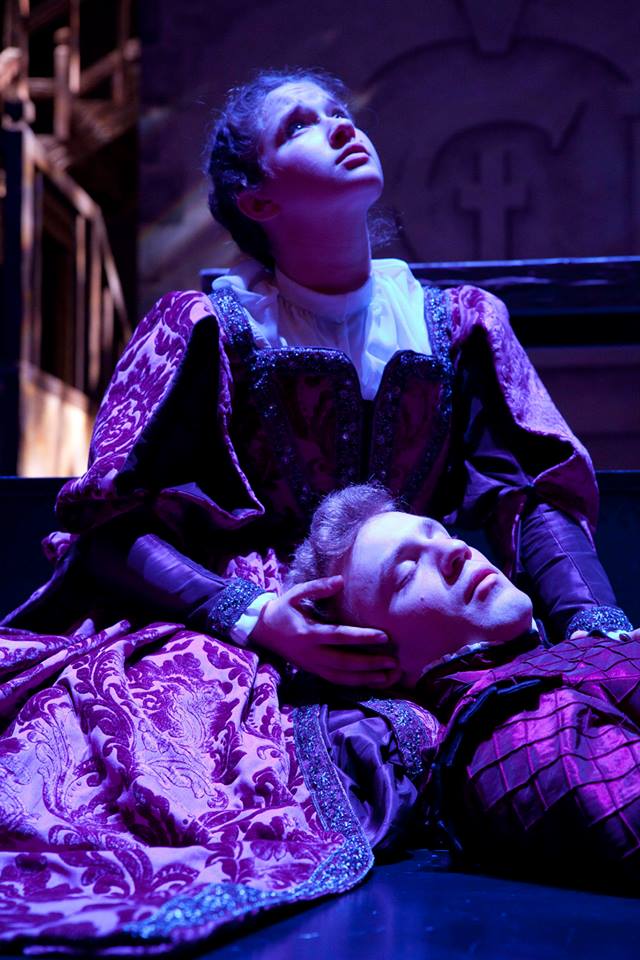ROMEO AND JULIET
Concept Ideas
Romeo and Juliet is quite simply one of the most famous plays of all time. The balcony scene and images of young romance is as synonymous as the characters themselves. My first encounter with the play was as the nurse in a sixth grade production. This elementary version ended not with the lovers’ death, but with their wedding uniting their feuding families. Later, as a junior in high school, I read Shakespeare’s full play and discovered the real ending. Ah! Why? Why not tell me the truth when I was 12? Was I not ready to hear? Would I not understand? What about the age of a person signifies the shift from childhood to adulthood? Why are children’s choices and actions less meaningful or significant than that of an adult? What might adults learn from the purity and innocence of a child? These are only a few of the many questions that I believe Shakespeare is asking in Romeo and Juliet.
Shakespeare sets us up perfectly for a commedia-like fairytale. From the opening scenes, the play is youthful and comedic. We see two young lovers. We are introduced to the family that forbids their love. There is even the funny best friend and the crazy old lady. Following Shakespearean comedic conventions, the second act even ends with a wedding: and they lived happily ever after. Psyche! What becomes apparently different is that this is no ordinary fairytale. This feud has no right or wrong side (two households both alike in dignity). All of the characters are good intentioned and justify their actions in the name of “love.” Friar Laurence acts in his love for god, Capulet in his love for his daughter, the prince in his love for a nation, and of course the young love that motivates the initial action in the play. Unlike any other Shakespearean text, there are no clear cut heroes, and no clear antagonists. However, a tragedy somehow happens. Both families are impacted, but it is the children that are changed forever. With the death of Mercutio, the others are forced into an adult world that they had little knowledge of before his death. This absence of choice in this changing world is the tragedy. Growing up, coming of age, Romeo and Juliet’s bright dreams die as the nightmare becomes their new ‘reality.’
Many scholars maintain Romeo and Juliet is Shakespeare’s first tragedy, and I believe we see Shakespeare come of age as a writer in the same way these young lovers do. Play time was over. Beginning as a childlike comedy, Shakespeare’s own life struck tragedy and reality was perhaps bleaker then any of his previous plays could have imagined. It is with this idea that I have decided to stage Romeo and Juliet. By removing the story from Verona and placing it in Shakespeare’s England, perhaps we can uncover or further, layers of the play. I will begin the play in London’s “golden age” with the religious/political entities of Catholic/Protestant still prevalent. This decision will provide the audience with a clear historical departure point as the play unfolds as something similar to a historical fiction. As Romeo and Juliet fall in love, marry, and “grow up,” the audience will see in text, in setting, and in portrayal how the lovers and perhaps Shakespeare’s writing come of age.
I conceptualized the play to open up like a storybook/pop up book. The curtains will part like the cover and behind the front page the play unfolds through the eyes of Romeo and Juliet as the children they are. Life is happy, bright, and magical. There is a shimmer and wonder to this world, as if it was drawn from a fairytale or that reality was seen through a sparkling champagne glass. Their world is blooming with optimism, hope, spontaneity and potential with little to care for and endless possibilities of dreams. The narrative of the play unfolds in such a way that the young lovers pursue every step with little consciousness for the consequences of their actions or the seriousness of the feuding world they live in, and as such, make several life altering decisions along the way. They disregard their feuding families, Juliet disobeys a previously arranged marriage, Romeo conspires with a friar from an opposite faith, and by the age of 14, they are married. Love is real to them, real to a 14 year old child, and similar to what is told in a children’s book, love conquers all right? This bright-eyed optimism in their actions needs not only to be heard in their words but will be seen in the swinging pop-out signs in the street, Juliet jumping on a bed with bright/magical curtains, the playfulness and frivolity in the staging, the jolly musical instruments and 4 part madrigal joyfulness as well as the visual aspects of the play. We will be taking the audience back to their own childhoods when life was carefree and magical, and in this they will “grow up” alongside these youngsters. After their dream/magical wedding, a playful teasing fight between Mercutio and Tybalt will ensue. Almost like the class clown teasing the jock on the playground, it’s all fun and games. I will even have Mercutio fighting with the bow of a violin instead of a sword for a large majority of the struggle. Tybalt never intends to kill Mercutio, he too does not understand the feud or the consequences of his actions and under Romeo’s arm accidentally kills Mercutio. This is perhaps the most important event in the play, for it is in this moment that the world begins to shift. Mercutio dies, and Romeo in a revengeful stupor will ferociously kill Tyablt. Unlike the previous fight, there is nothing playful. The feud is now real to him, he can see it in red. The first half of the play ends as we begin to hear a rainstorm…. The bright eyed world they once viewed is changing.
In Act II, we begin with Juliet finding out about the news of Tybalts death. While digesting the news, she will tear down the curtains of her childhood bed and throw a child’s temper tantrum. The feud is now real to her, and for the first time she is realizing what her marriage to Romeo really has done. And it is in this that the concept will truly unfold as Juliet begins to see the world she lives in revealed. The bubble is popped! The book is destroyed! As the rain continues, all magic, optimism, and hope begins to fade away from the pages. Reality is dreary, grungy, grotesque and dark. The family she knew and loved is somehow misshapen in her new view and harsh, both in words and appearance. The swinging signs in the street no longer pop but fade. The birds that were once heard are now drowned out by rain and the once star filled sky is covered by clouds and shadows. The characters themselves have changed as well. The nurse once light and boisterous is solemn and depressed. Friar Laurence once smiled at the lovers union and now both chastises the lovers and curses his own stupidity. The Capulets, after losing Tybalt, are quick to marry Juliet and disregard her feelings when once they both caressed and comforted. Their world is completely different. After realizing this, Romeo and Juliet still decide to fight for each other: the last glimpse of the world they once knew, the innocence they have lost and perhaps can find again in their love for each other. The music will also shift as the beauty of 4 part harmony will disintegrate into a singular, alone, and haunted voice to the sound of thunder and rain. Slowly their previous life is washing away and the reality that we are left with is dim, deformed, gloomy, dismal, and bleak. The dreamlike popup world becomes a never ending nightmare.
What childhood aspects die in all for the sake of society, for the family, or for the feud? What does “growing up” mean? Maybe by seeing this play through the eyes of child growing up, we will discover what in our own beautiful bright world is ultimately sacrificed when we come of age?
Watch audience reactions!




